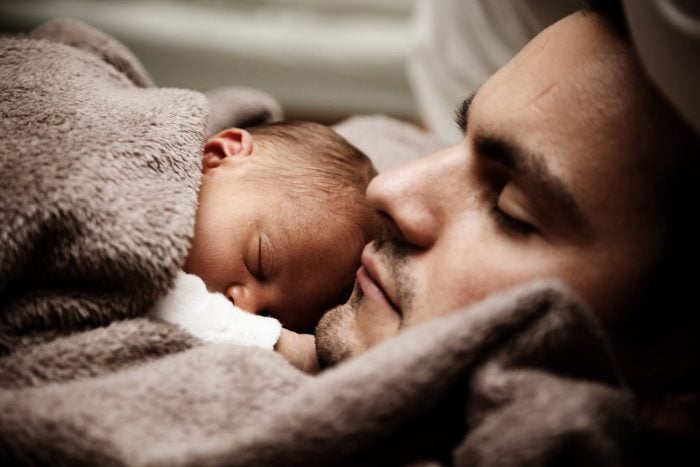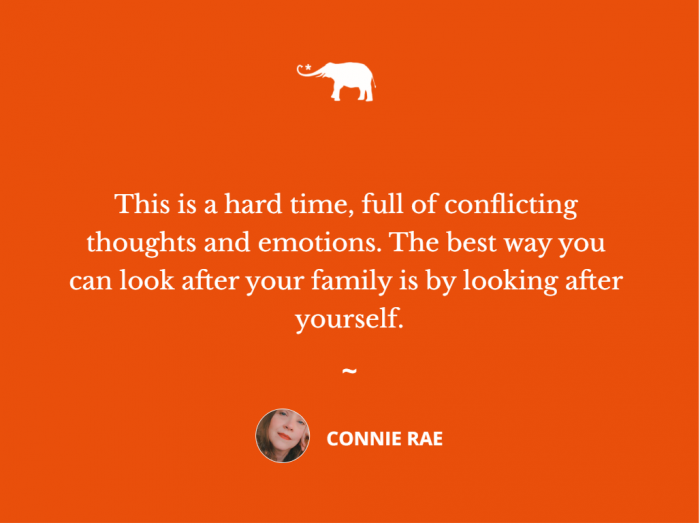My first baby was born premature in September 2003.
She had not been due until the first week in November, so to say it came as a surprise is an understatement. Within three days, I was diagnosed with preeclampsia, admitted to hospital, and gave birth via emergency caesarean.
That last day was the hardest. My blood pressure slowly continued to rise until I was a screaming, vomiting mess, and I was rushed to theatre. My husband then received the call as he was climbing into bed, and he says the drive to the hospital was one of the hardest he has ever done.
He was shaking and had to stop the car by the side of the motorway to regain his composure. I was being wheeled into theatre as he arrived at the hospital, and a well-meaning midwife said, “Your baby is fine, but your wife is probably not going to make it!”
He lost the feeling in his knees and collapsed to the chair nearby. I can only imagine how he got through the next half hour as our beautiful daughter was delivered, weighing three pounds and 10 ounces. He sat alone, in a new country, with no extended family, waiting to hear if his wife would make it. And at the same time, he joyfully waited to hold his daughter, his firstborn, whom he had waited and longed for.
Our daughter was wheeled out first, and he was instantly infatuated. As soon as he heard that the surgery had been successful and I was okay, he followed her up to the special unit and could not tear himself away. He felt he needed to protect and accompany this fragile, tiny life that had originated from him.
I was kept under anesthesia for the best part of two days.
During this time, he spent the day between our daughter and me. On the third day, I realised that clicking the morphine pen wasn’t helping me wake up and stopped working at all. I was awake and in bad form. I hadn’t seen my baby yet, my brain felt like cotton wool, my hair was a big mass of knots and I was sore—very sore! So I couldn’t understand why he wouldn’t wipe the big, goofy grin off his face! It irritated me immensely, and I shouted and moaned as he tried to brush the knots out of my hair.
In that moment, I begrudged him. I begrudged the visits to our daughter that he made and I couldn’t. I begrudged his lack of pain and trauma, the trauma that I had felt and experienced. I could feel no empathy for him and had no appreciation for his experience.
That night I was taken up in my bed to the special unit, to see my daughter for about 15 minutes and was then moved to the ward.
Things only got worse for me.
Everyone else on the ward had a baby and I didn’t. At this point, my milk had “come in,” and with no baby to feed, it was a nightmare. It all came to a head that first night in the ward when I rang the bell and no one came. I rang my husband and sobbed while talking to him on the phone. He didn’t know what to do or how to help me, what with him being miles away at home.
I swore at him and put the phone down.
The next morning the baby blues had already set in, and I couldn’t stop crying. My husband didn’t ring me, and I didn’t know if he was coming during visiting hours. When he did finally arrive, he stayed for five minutes and then went up to see our daughter. I don’t think I have ever felt more miserable.
Luckily the blues only lasted one day and things gradually began to get better.
I got stronger and started visiting my daughter a few times a day and finally got home but without her. Getting her home was another journey. Driving back and forth to the hospital, continually expressing, and with one big health scare for baby, it was not an easy journey, but we had hope and finally I had the motivation I needed to fight.
Life moved on. But I held on to how utterly alone I had felt. I had flashbacks of the day I had the baby blues and felt betrayed by my husband. I felt his only job had been to look after me and he had failed. I held on to that throughout all the days in which he held my hand and held our baby and drove me back and forth from the hospital.
But it wasn’t until nearly a year later that he told me what had been said to him when he had arrived at the hospital that night, that I was wheeled into theatre. And it wasn’t until almost exactly two years later, when we came home with our son in our arms, that I began to heal, and in the healing developed empathy for what he had been through alone. I had cried and complained to him, but he had said nothing to me, knowing I had my own trauma to deal with.
We were both determined that this time would be different, and it was.
My son was six days late. I went into labour in September 2005 and ended up having another emergency C-section. But this time I was awake, and he was with me in the theatre. It felt like he was a part of it, whereas with my daughter I had felt alone, and I suspect he had too.
As he held up this monster baby with the big head (seven pounds 13 ounces seemed huge after our tiny daughter), I felt a surge of love for them both! My son needed no tubes or prompts to feed, and it was the first thing he did. Finally, I felt like we were a family, the four of us!
My husband understood better what I needed this time around. He did housework till he became exhausted, made me cups of tea, and walked the baby up and down. He had felt nervous while holding our tiny daughter, but this time, he could make up for it, and he did.
This seems such a long time ago now, as that tiny baby approaches 18 this September, but it took me many years to really develop empathy for my husband’s experiences during that first birth. He simultaneously dealt with the joy of having his firstborn, and the fear of losing his wife. The helplessness he felt was in not knowing how to help me, and the feeling of being torn between knowing I needed him in the ward, and wanting to be with his daughter in the special unit.
And when I took a year off work, he was back to night shifts, 2 weeks after this mammoth life event—the birth of a first child amidst traumatic circumstances.
When he came home from work, he wanted to see his daughter, and I wanted to sleep. He balanced permanent sleep deprivation while doing overtime at work and never felt he could discuss it with me. That was my fault because I was purely focused on my sleep deprivation and needs. I am not judging myself here, but it still amazes me how unaware I was of his feelings, emotions, and experiences.
So spare a thought for the new dads.
If you are extended family or friends, ask him how he is coping too! Ask him if he would like a cup of tea or a break to get a nap!
He already feels a bit isolated from mum and baby; don’t make him feel more so by pampering them and leaving him out. And if you are a new dad, just know you are not alone. Talk to someone even if you can’t talk to your partner. Don’t feel selfish if you take out some time for self-care or a nap. If there is no one else around, speak to a counsellor in case you are struggling, and encourage your partner to do the same.
This is a hard time, full of conflicting thoughts and emotions. The best way you can look after your family is by looking after yourself.


 Share on bsky
Share on bsky






Read 7 comments and reply